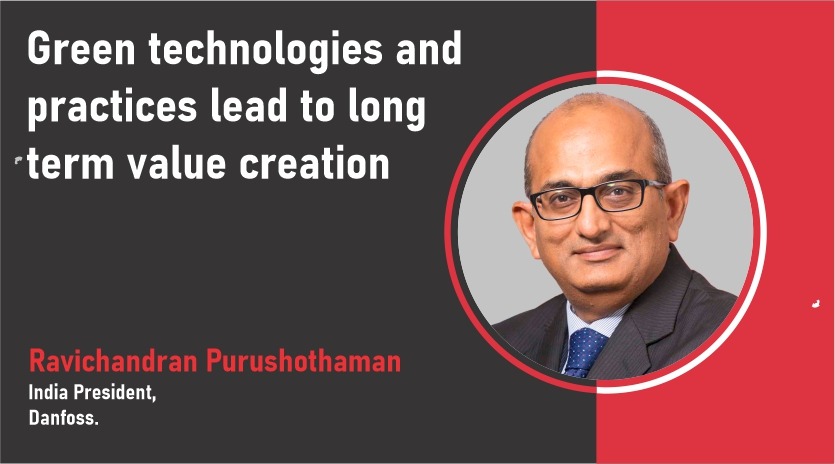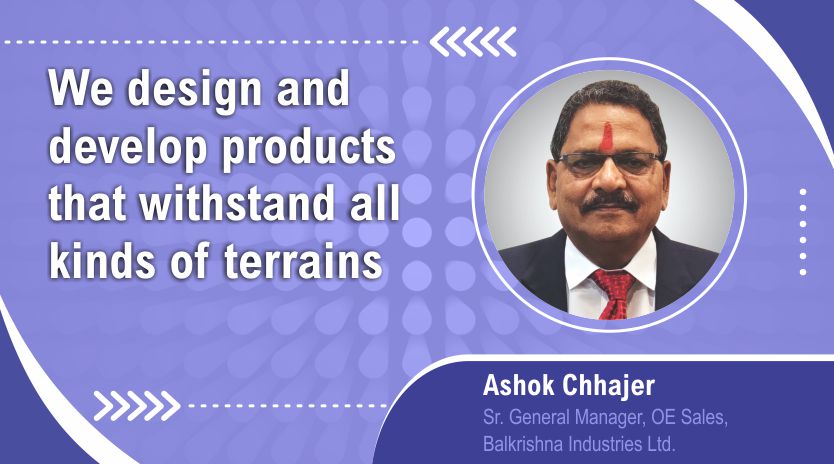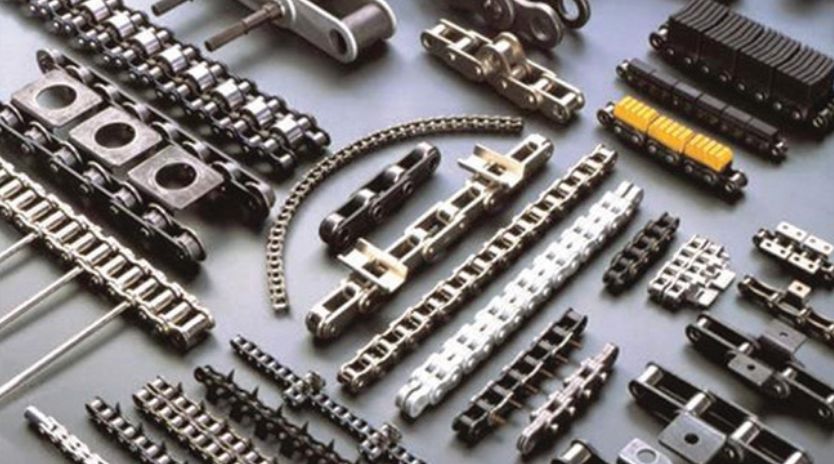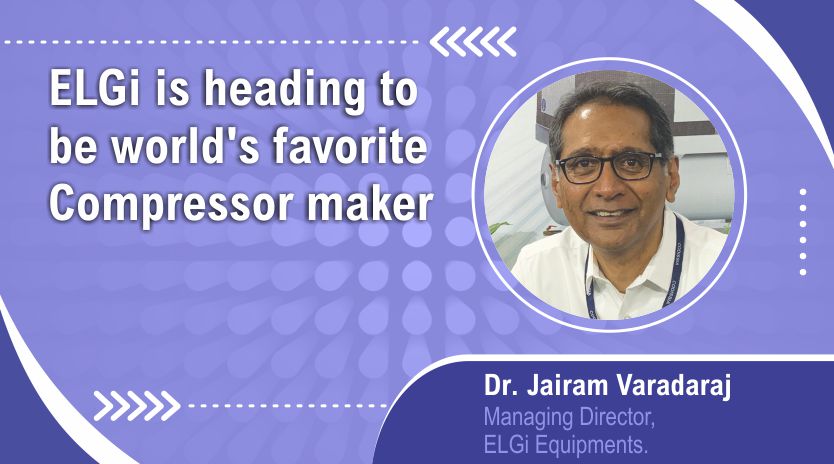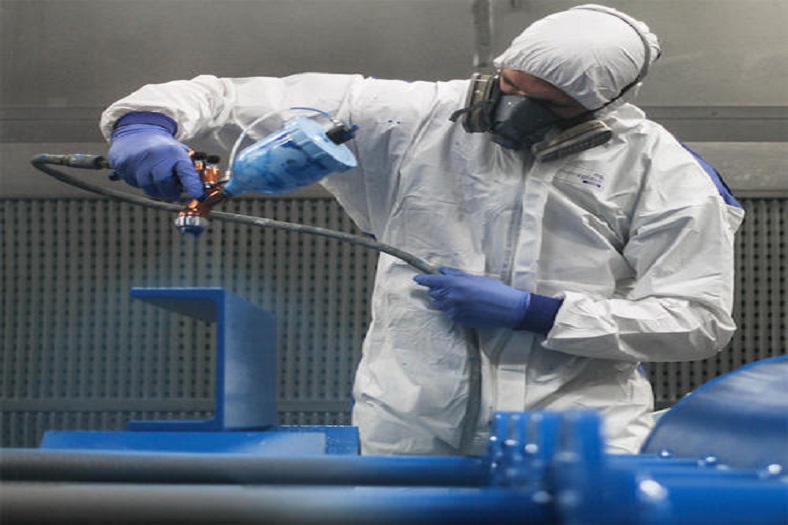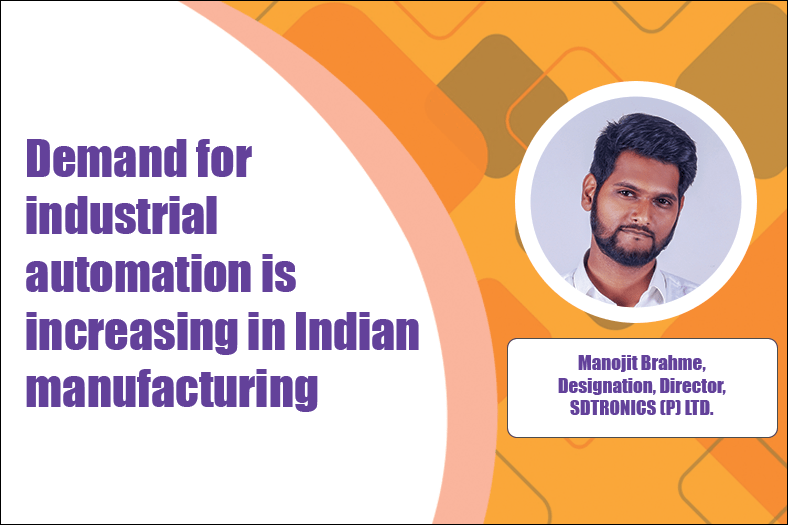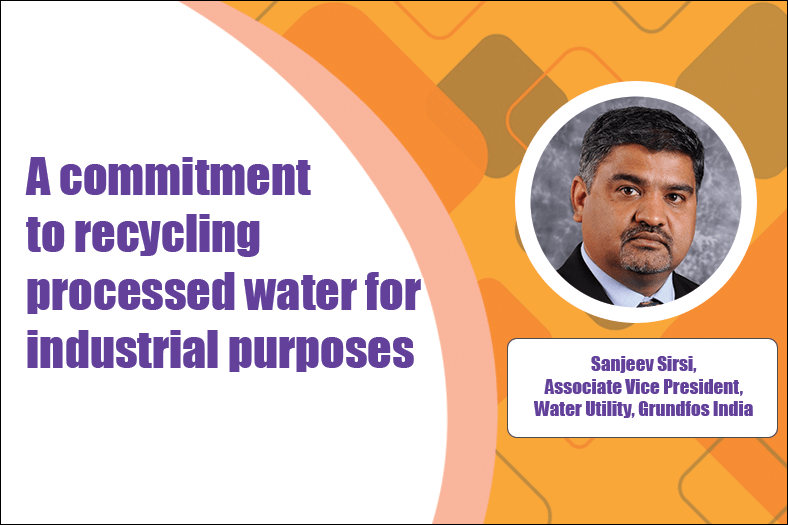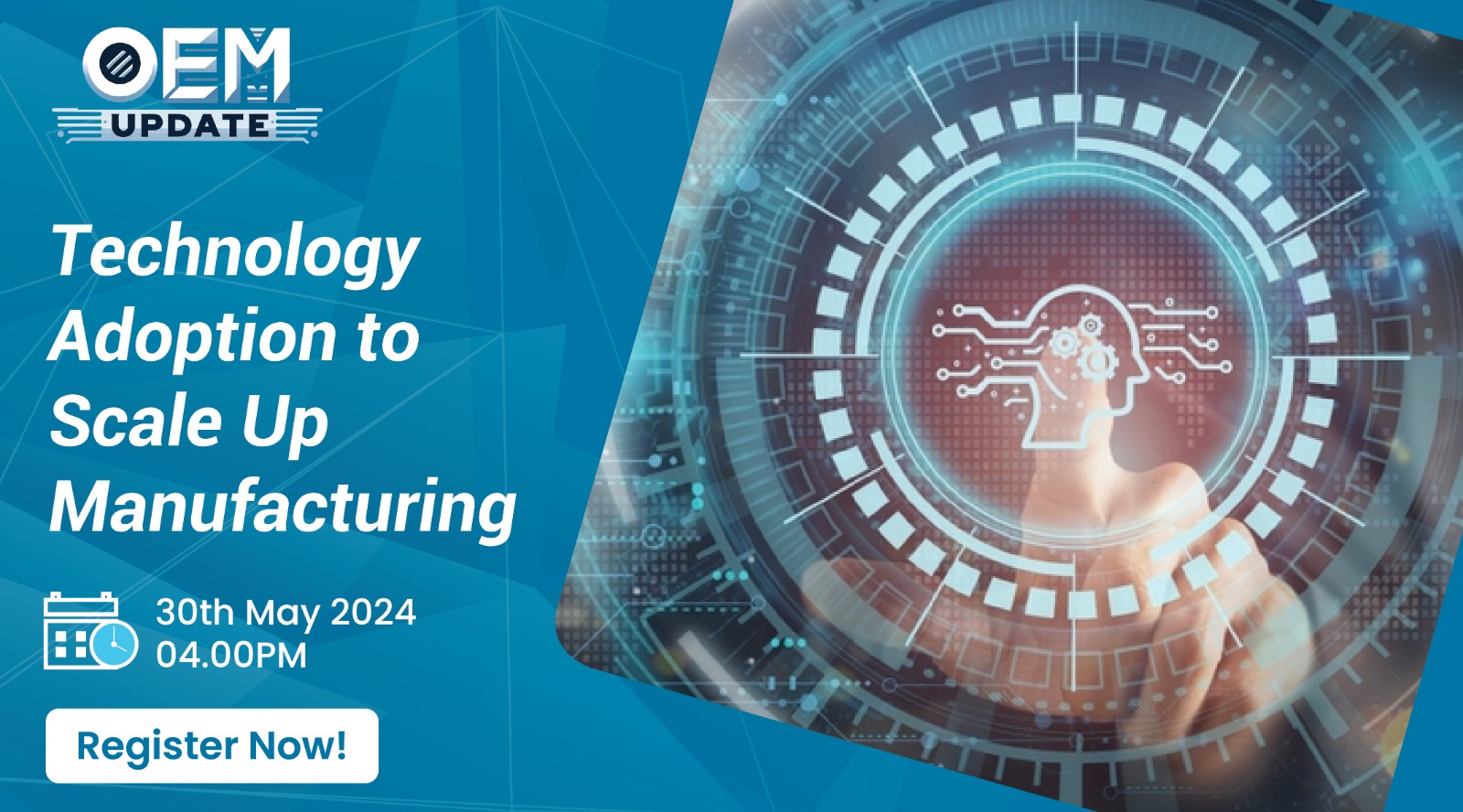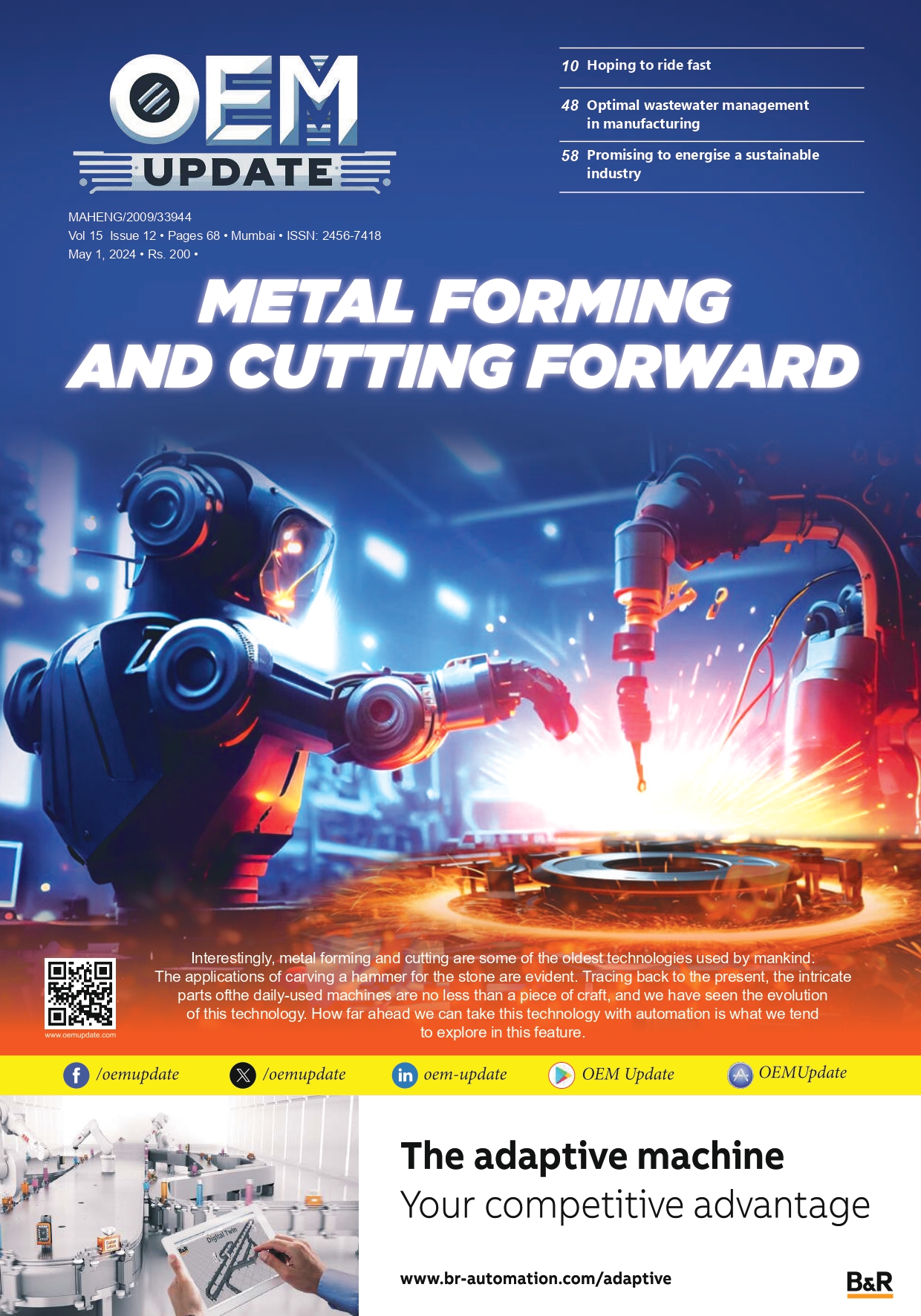Green technologies and practices lead to long-term value creation
July 7, 2023 6:19 pm
Ravichandran Purushothaman, India President, Danfoss, discusses green manufacturing initiatives often go hand in hand with process optimisation and automation, and, streamlining workflows and reducing downtime can contribute to overall cost savings and enhanced profitability.
How does HVAC technology empower sustainability in your manufacturing units?
Danfoss has deployed HVAC systems in its manufacturing units to prioritise energy efficiency, minimise environmental impact, and foster sustainable practices while providing comfortable cooling. These systems employ smart controls, variable frequency drives, and advanced sensors to monitor and regulate temperature, ventilation, and air quality. By dynamically adjusting the HVAC systems in response to real-time demand, they create a pleasant working environment for employees.
Our manufacturing plants utilise energy-efficient Danfoss products such as the Turbocor compressor and line components for HVAC systems. Additionally, we have implemented a spot cooling system for the shop floor and WCW (water closet) cooling in the office areas. These measures align with our commitment to environmental stewardship and contribute to a greener and more sustainable future.
What current practices are ingrained in your manufacturing operations?
We have integrated sustainability into our manufacturing operations and campus infrastructure. Our commitment to sustainability is evident in the fact that over 90 percent of our energy consumption comes from renewable sources, resulting in a substantial decrease in our carbon footprint. To accomplish this, we use solar energy to power our campus’s cooling and lighting systems. Furthermore, by incorporating wind power into our energy infrastructure, we can further diminish our reliance on fossil fuels to minimal.
Furthermore, we employ IoT (Internet of Things) technology to optimise water usage and promote water conservation within our manufacturing units. We can track and manage water consumption through intelligent sensors and monitoring systems, ensuring that we use water efficiently and avoid unnecessary waste. We are a LEED Zero Water certified facility recognised by the US Green Building Council.
The manufacturing process is IT-driven – from printed circuit board assembly and soldering to mechanical assembly and testing – all governed by advanced production software and state-of-the-art equipment. By integrating renewable energy sources like solar and wind power and implementing IoT technology for water conservation, we are committed to operating in an environmentally responsible manner. These initiatives align with our goal of minimising our ecological impact and contributing to a sustainable future for our manufacturing operations and the community.
How are these practices helping you in reducing your carbon footprint?
The sustainability practices are part of our commitment to environmental, social, and governance (ESG) principles. We actively engage with our suppliers, customers, and the Danfoss community to promote the adoption of green energy and reduce our collective carbon footprint. Danfoss has committed to carbon neutrality in scopes 1 and 2 emissions by 2030. Danfoss will reduce absolute scope 3 GHG emissions by 15 percent in the same time frame.
We are actively working towards a more sustainable future by embracing renewable energy sources, implementing IoT technology for water conservation, and collaborating with stakeholders. Our dedication to ESG principles ensures we play our part in mitigating climate change and building a greener world for future generations.
How do Artificial Intelligence, ML, robotics, etc., help fuel the transformation of Indian manufacturing in the HVAC industry?
Artificial Intelligence (AI), Machine Learning (ML), robotics, and other emerging technologies are playing a crucial role in driving the transformation of the Indian manufacturing industry, specifically in the HVAC sector. In today’s digital era, these technologies have been successfully scaled up to enable end-to-end supply chain transformation, enhance daily operations, and foster organisational innovation and automation, ultimately leading to customer satisfaction.
AI and ML algorithms are utilised to analyse large volumes of data and gain valuable insights. By leveraging these technologies, manufacturers can optimise their operations, predict maintenance needs, and improve energy efficiency in HVAC systems. Analysing data in real-time allows for proactive decision-making and identifying patterns or anomalies that can help streamline manufacturing processes.
Robotics automation has also revolutionised the HVAC industry. Robots are deployed in various tasks, such as assembly, quality control, and material handling. They enhance efficiency, precision, and consistency while reducing the risk of human error. Thus, manufacturers can allocate human resources to more complex and creative tasks, driving productivity and innovation.
Furthermore, these technologies facilitate the development of advanced HVAC systems and components. Manufacturers can design and produce cutting-edge products that meet evolving customer needs through innovation and automation. AI and ML algorithms aid in the creation of intelligent HVAC systems capable of self-adjusting based on real-time conditions, optimising energy usage, and enhancing comfort levels. This focus on innovation and automation enables manufacturers to stay competitive and provide exceptional products and services to their customers. By embracing these advancements, manufacturers can achieve operational efficiency and deliver customer delight through improved products, streamlined processes, and enhanced overall performance.
What are the key challenges while shifting towards modernising manufacturing facilities?
As we strive to adapt to the demands of the digital world, several challenges arise in modernising Indian manufacturing facilities. One key challenge is upgrading our existing infrastructure and processes to align with the requirements of a rapidly evolving digital landscape. This transformation entails investing in new technologies and ensuring that our workforce is equipped with the necessary skills and capabilities to navigate and thrive in this digital era.
Another challenge lies in the complexity and scale of modernisation efforts. Integrating advanced technologies, such as AI, ML, robotics, and IoT, into our manufacturing facilities requires careful planning, resource allocation, and coordination. It involves retrofitting existing machinery and systems, implementing new software and hardware solutions, and training employees to leverage these technologies.
The shift towards modernisation also necessitates a cultural and mindset change within organisations. It requires a shift towards embracing innovation, agility, and continuous improvement. Breaking away from traditional ways of operating and adopting new approaches can be a significant challenge, as it often requires a transformation of not only systems and processes but also organisational culture and mindset.
Despite these challenges, Indian industries are actively gearing up for transformation and are investing in developing the necessary capabilities to adapt and thrive in the digital age. By recognising these challenges and addressing them head-on, we can modernise our manufacturing facilities, foster innovation, and contribute to the growth and competitiveness of the Indian manufacturing sector.
Moving ahead with green manufacturing that affects the cost and bottom line, how to get financial viability while implementing these technologies?
When embracing green manufacturing practices, short-term capital investment may be required for technology upgrades, which can affect the bottom line. However, it is essential to consider the long-term financial viability and the overall impact on the company’s bottom-line and top-line growth.
Implementing green technologies and practices can lead to cost-saving opportunities in the long run. For example, energy-efficient technologies can significantly reduce energy consumption and lower utility costs. Companies can also reduce waste generation and associated disposal costs by optimising resource usages, such as water and raw materials. Moreover, green manufacturing initiatives often go hand in hand with process optimisation and automation, which can improve operational efficiency and productivity. Streamlining workflows, eliminating redundancies, and reducing downtime can contribute to overall cost savings and enhanced profitability.
In addition to cost savings, green manufacturing practices can create new business opportunities. Many customers today prioritise sustainable and environmentally friendly products and services. By aligning with these values, companies can attract environmentally conscious consumers, expand their market reach, and drive top-line growth.
Please talk about a range of initiatives and strategic plans to enhance sustainability in manufacturing.
In our commitment to promoting sustainability in manufacturing, we have implemented various initiatives and have strategic plans in place. These initiatives aim to drive positive environmental impact, optimise operations, and enhance overall sustainability throughout our supply chain. One of our key initiatives is achieving localisation in our supply chain, with a target of 85 to 90 percent. Localising our operations reduces transportation distances, carbon emissions, and reliance on long-distance logistics. This regional supply chain approach enables us to support local economies, foster closer relationships with suppliers, and minimise the environmental footprint associated with transportation.
We also focus on optimising packaging and transportation practices. This includes implementing recycling and reuse programs for packaging materials within our operations and in collaboration with our suppliers and customers. By reducing waste and promoting circular economy principles, we strive to minimise our environmental impact and contribute to a more sustainable manufacturing ecosystem.
We have embraced end-to-end digitalisation to enhance our supply chain resilience and efficiency. This includes integrating suppliers into our digital supply chain ecosystem, enabling seamless collaboration, performance tracking, and efficient procure-to-pay processes. We also leverage touchless sales solutions to provide a streamlined and sustainable customer experience. These digital initiatives optimise operations, reduce paper usage, streamline processes, and minimise environmental impact.
We prioritise excellence and continuous improvement in our manufacturing technology. To achieve this, we invest in state-of-the-art solutions like Manufacturing Execution Systems (MES) and Manufacturing Operations Management (MOM) platforms, which enhance efficiency, traceability, and quality control. By implementing automation, modularisation, simulation, and upgrading our machine park, we optimise our manufacturing processes, minimise waste, and improve resource utilisation. Our focus on New Product Development (NPD) and innovation ensures that sustainability principles are integrated into the design and development of our products. Quality excellence is a fundamental aspect of our sustainability efforts as we establish a solid foundation in quality management and master data to ensure our products consistently meet the highest standards of quality and reliability. Through our commitment to zero defects, we reduce waste and rework, enhance customer satisfaction, and extend the lifespan of our products.
Overall, these initiatives and plans underscore our dedication to promoting sustainability in manufacturing. By localising supply chains, optimising packaging and transportation, embracing digitalisation, adopting advanced manufacturing technologies, and ensuring quality excellence, we strive to create a more sustainable and environmentally friendly manufacturing ecosystem.
Cookie Consent
We use cookies to personalize your experience. By continuing to visit this website you agree to our Terms & Conditions, Privacy Policy and Cookie Policy.


